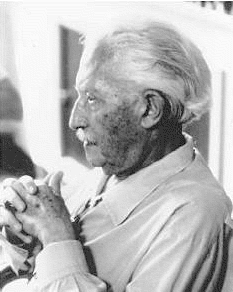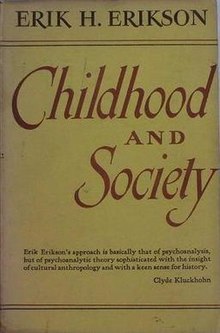
Developmental psychology is the scientific study of how and why humans grow, change, and adapt across the course of their lives. Originally concerned with infants and children, the field has expanded to include adolescence, adult development, aging, and the entire lifespan. Developmental psychologists aim to explain how thinking, feeling, and behaviors change throughout life. This field examines change across three major dimensions, which are physical development, cognitive development, and social emotional development. Within these three dimensions are a broad range of topics including motor skills, executive functions, moral understanding, language acquisition, social change, personality, emotional development, self-concept, and identity formation.
Psychoanalytic theory is the theory of personality organization and the dynamics of personality development that guides psychoanalysis, a clinical method for treating psychopathology. First laid out by Sigmund Freud in the late 19th century, psychoanalytic theory has undergone many refinements since his work. The psychoanalytic theory came to full prominence in the last third of the twentieth century as part of the flow of critical discourse regarding psychological treatments after the 1960s, long after Freud's death in 1939. Freud had ceased his analysis of the brain and his physiological studies and shifted his focus to the study of the mind and the related psychological attributes making up the mind, and on treatment using free association and the phenomena of transference. His study emphasized the recognition of childhood events that could influence the mental functioning of adults. His examination of the genetic and then the developmental aspects gave the psychoanalytic theory its characteristics. Starting with his publication of The Interpretation of Dreams in 1899, his theories began to gain prominence.

Anna Freud was a British psychoanalyst of Austrian-Jewish descent. She was born in Vienna, the sixth and youngest child of Sigmund Freud and Martha Bernays. She followed the path of her father and contributed to the field of psychoanalysis. Alongside Hermine Hug-Hellmuth and Melanie Klein, she may be considered the founder of psychoanalytic child psychology.
A young adult is generally a person in the years following adolescence. Definitions and opinions on what qualifies as a young adult vary, with works such as Erik Erikson's stages of human development significantly influencing the definition of the term; generally, the term is often used to refer to adults in approximately the age range of 18 to 35 or 39 years. However, the term young adult is very often misused informally or in a literary sense to refer to children down to ages 12 or 13 due to the category of young adult literature targeting this demographic in the lower age limit. This broad extension of young adult to minors has been greatly disputed, as they are not considered adults by the law in most western countries or any other cultures aside from religion, and the tradition of biological adulthood beginning at puberty has become archaic.

In sociology, a peer group is both a social group and a primary group of people who have similar interests (homophily), age, background, or social status. The members of this group are likely to influence the person's beliefs and behaviour.

Erik Homburger Erikson was a German-American developmental psychologist and psychoanalyst known for his theory on psychological development of human beings. He coined the phrase identity crisis.
Psychobiography aims to understand historically significant individuals, such as artists or political leaders, through the application of psychological theory and research.
Identity is the qualities, beliefs, personality traits, appearance, and/or expressions that characterize a person or group.
Erikson's stages of psychosocial development, as articulated in the second half of the 20th century by Erik Erikson in collaboration with Joan Erikson, is a comprehensive psychoanalytic theory that identifies a series of eight stages that a healthy developing individual should pass through from infancy to late adulthood. According to Erikson's theory the results from each stage, whether positive or negative, influences the results of succeeding stages. Erikson published a book called Childhood and Society around the 1950s that made his research well known on the eight stages of psychosocial development. Erikson was originally influenced by Sigmund Freud's psychosexual stages of development. He began by working with Freud's theories specifically, but as he began to dive deeper into biopsychosocial development and how other environmental factors affect human development, he soon progressed past Freud's theories and developed his own ideas.
In psychology, developmental stage theories are theories that divide psychological development into distinct stages which are characterized by qualitative differences in behavior. Developmental stage theories are one type of structural stage theory.
Nancy Julia Chodorow is an American sociologist and professor. She began her career as a professor of Women's studies at Wellesley College in 1973, and from 1974 on taught at the University of California, Santa Cruz, until 1986. She then was a professor in the departments of sociology and clinical psychology at the University of California, Berkeley until she resigned in 1986, after which she taught psychiatry at Harvard Medical School/Cambridge Health Alliance. Chodorow is often described as a leader in feminist thought, especially in the realms of psychoanalysis and psychology.

Frederick Campbell Crews is an American essayist and literary critic. Professor emeritus of English at the University of California, Berkeley, Crews is the author of numerous books, including The Tragedy of Manners: Moral Drama in the Later Novels of Henry James (1957), E. M. Forster: The Perils of Humanism (1962), and The Sins of the Fathers (1966), a discussion of the work of Nathaniel Hawthorne. He received popular attention for The Pooh Perplex (1963), a book of satirical essays parodying contemporary casebooks. Initially a proponent of psychoanalytic literary criticism, Crews later rejected psychoanalysis, becoming a critic of Sigmund Freud and his scientific and ethical standards. Crews was a prominent participant in the "Freud wars" of the 1980s and 1990s, a debate over the reputation, scholarship, and impact on the 20th century of Freud, who founded psychoanalysis.
James E. Marcia is a clinical and developmental psychologist. He previously taught at Simon Fraser University in British Columbia, Canada and the State University of New York at Buffalo in Upstate New York.
The latency stage is the fourth stage of Sigmund Freud's model of a child's psychosexual development. Freud believed that the child discharges their libido through a distinct body area that characterizes each stage.
Erikson Institute is a graduate school in child development in downtown Chicago, Illinois. It is named for the noted psychoanalyst and developmental psychologist, Erik Erikson.
Barbara Taylor Bowman is an American early childhood education expert/advocate, professor, and author. Her areas of expertise include early childhood care/education, educational equity for minority and low-income children, as well as intergenerational family support and roles. She has served on several boards and was the co-founder of Erikson Institute, where she pioneered the teaching of early childhood education and administration.

Young Man Luther: A Study in Psychoanalysis and History is a 1958 book by the psychologist Erik Erikson. It was one of the first psychobiographies of a famous historical figure. Erikson found in Martin Luther a good model of his discovery of "the identity crisis". Erikson was sure he could explain Luther's spontaneous eruption, during a monastery choir practice, "I am not!"

Melanie Killen is a developmental psychologist and Professor of Human Development and Quantitative Methodology, and Professor of Psychology (Affiliate) at the University of Maryland, and Honorary Professor of Psychology at the University of Kent, Canterbury, UK. She is supported by funding from the National Institute of Child Health and Human Development (NICHD), and the National Science Foundation (NSF) for her research. In 2008, she was awarded Distinguished Scholar-Teacher by the Provost's office at the University of Maryland. She is the Director of the Social and Moral Development Lab at the University of Maryland.
Ethnic identity development includes the identity formation in an individual's self-categorization in, and psychological attachment to, (an) ethnic group(s). Ethnic identity is characterized as part of one's overarching self-concept and identification. It is distinct from the development of ethnic group identities.
Darcia Narvaez is a Professor of Psychology Emerita at the University of Notre Dame who has written extensively on issues of character, moral development, and human flourishing.







